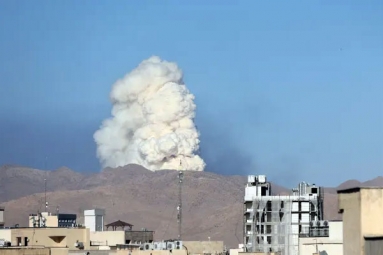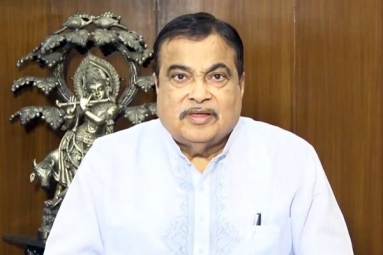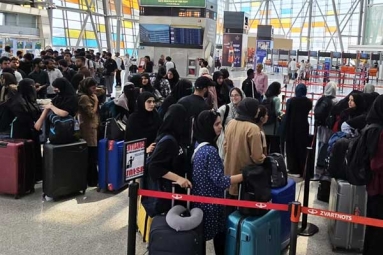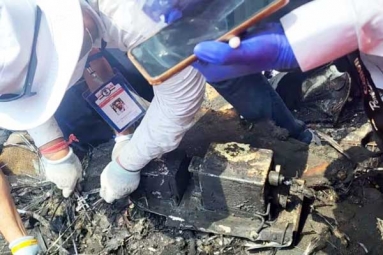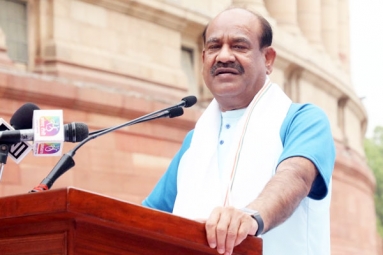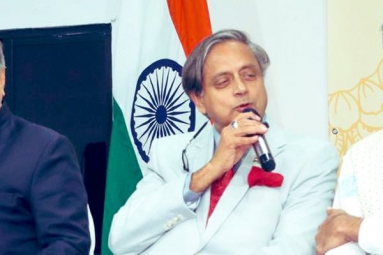
Members of the opposition bloc, led by Congress MP Rahul Gandhi, met with Lok Sabha Speaker Om Birla on Thursday to formally express their concerns. They argued that his references in Parliament to the "dark days of the Emergency" were a serious matter that undermined the credibility of the legislative body. The opposition, including representatives from the NCP, RJD, and DMK, conveyed their "profound concern and anguish over this travesty of parliamentary traditions." During the meeting, Mr. Gandhi is believed to have told the Speaker that his remarks and the call for a two-minute silence were unnecessary, given the general camaraderie in the House during the earlier felicitations on his election as Lok Sabha Speaker. The opposition members asserted that making such a political reference from the Chair was unprecedented in the history of Parliament.
The newly elected Speaker's comments have caused a stir, a letter addressed to them, signed by KC Venugopal, states. Many topics were discussed, including the functioning of Parliament. The issue was brought up, and Rahulji, as the Leader of the Opposition, told the Speaker that the reference could have been avoided. It was clearly a political statement and could have been left out, Mr. Venugopal told the press. Mr. Birla's remarks on Wednesday, without directly naming the Congress, were obvious and have strained the relationship with the BJP following his re-election as the Speaker. In his address to the House after the election, Mr. Birla called for a moment of silence to honor those who opposed the Emergency, and criticized the government at the time. On that fateful day, then-Prime Minister Indira Gandhi forcefully imposed a state of Emergency, disregarding the Constitution's principles. Despite India's longstanding support for democratic values and open discourse, a period of authoritarian rule was cruelly enforced. Democratic ideals were trampled, and the freedom to express oneself was ruthlessly suppressed. The 25th of June 1975 will forever be remembered as a dark chapter in India's history.
"भारत के इतिहास में 25 जून 1975 के दिन को काले अध्याय के रूप में जाना जाएगा।"
— Om Birla (@ombirlakota) June 26, 2024
सदन में 1975 में देश में आपात काल लगाए जाने के निर्णय की कड़े शब्दों में निन्दा की। साथ ही उन सभी लोगों की संकल्प शक्ति की सराहना की जिन्होंने इमरजेंसी का विरोध कर लोकतंत्र की रक्षा का दायित्व निभाया। pic.twitter.com/BdaJwhKT9P
Mr. Birla's comments, made as the BJP targets the Congress on this issue annually, provoked a fierce backlash from opposition lawmakers, many of whom rose to denounce the resolution. The Congress' Shashi Tharoor described the Speaker's message as "unfortunate." However, Mr. Modi praised Mr. Birla for the resolution and the mention of the Emergency in Parliament, asserting on X, "I am glad the Speaker strongly condemned the Emergency, highlighted the excesses committed during that time, and also mentioned the manner in which democracy was strangled". Days earlier, the Prime Minister had launched his own scathing attack. As he began the first Parliament session of his third term - after previously emphasizing the importance of consensus - he went on the offensive against the Congress, labeling the country's democratic record with a "black spot."
I am glad that the Honourable Speaker strongly condemned the Emergency, highlighted the excesses committed during that time and also mentioned the manner in which democracy was strangled. It was also a wonderful gesture to stand in silence in honour of all those who suffered…
— Narendra Modi (@narendramodi) June 26, 2024
The nation weathered a grave assault on its foundational document, a direct challenge to the very heart of its democratic order. Yet, through the collective resilience of its people, it emerged victorious, triumphing over those who sought to undermine its core principles. The ruling party and the opposition now find themselves embroiled in a heated debate, each side accusing the other of wielding power in a manner akin to an "undeclared Emergency." The opposition has decried the treatment of its members, alleging harassment, corruption charges, and the silencing of critical voices. As a symbol of their commitment to the Constitution, opposition lawmakers have defiantly displayed the text of the founding document during their parliamentary oaths. In the aftermath, congratulatory messages to the newly elected Speaker have underscored the need to address the mass suspension of opposition members that occurred just months prior.





